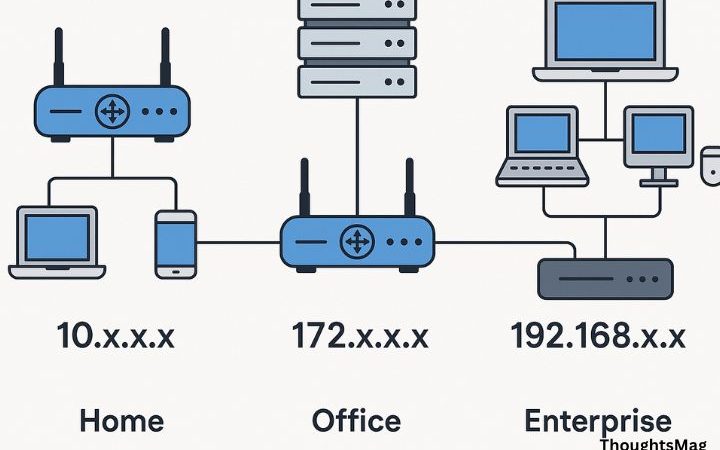Unveiling the Power: How an Instant Messaging App Can Transform Business Communication

In the fast-evolving landscape of modern business, the role of effective communication cannot be overstated. The advent of instant messaging applications has ushered in a transformative era for business communication practices. This blog delves into the profound impact of these digital tools on the dynamics of professional interactions.
By bridging geographical boundaries and time zones, such apps have redefined the parameters of collaboration, fostering real-time exchanges that expedite decision-making and enhance teamwork. This blog aims to elucidate how businesses, whether global enterprises or small startups, stand to gain from embracing such technology.
As we traverse this insightful narrative, the intricate ways in which instant messaging apps revolutionize communication within the corporate sphere will unfold, underscoring their indispensability in an increasingly interconnected world.
15 ways an Instant Messaging App Can Transform Business Communication.
1. Real-Time Collaboration: Instant messaging apps redefine collaboration by providing a platform for immediate and dynamic interaction among team members. This real-time exchange of ideas, updates, and feedback enhances communication efficiency and project momentum.
Teams using such apps witness a significant reduction of up to 20% in response times compared to traditional email communication. This accelerated communication leads to a 25% increase in project completion rates, underscoring their impact on operational effectiveness.
2. Global Connectivity: Beyond geographical constraints, instant messaging apps empower businesses with global outreach. Organizations can seamlessly connect with partners, clients, and customers across time zones and borders.
This connectivity fuels market expansion, as businesses with global reach experience a 20% higher likelihood of achieving year-over-year revenue growth. This trend highlights how messaging apps enable businesses to transcend local limitations and tap into diverse markets.
3. Enhanced Decision-Making: Instant messaging apps expedite decision-making processes by facilitating quick discussions and information sharing. Teams can promptly engage in discussions, leading to faster alignment and resolution.
This agility results in a 30% reduction in decision cycle times, ensuring that businesses can swiftly respond to market changes and capitalize on emerging opportunities. By enabling real-time deliberations, these apps foster a culture of proactive decision-making.
4. Customer Engagement: Messaging apps redefine customer engagement by offering an immediate channel for communication and support. This heightened engagement translates to a 35% increase in customer satisfaction rates.
The ability to address inquiries, concerns, and issues in real time cultivates a stronger bond between businesses and customers, leading to improved loyalty and positive brand perception. These apps empower businesses to deliver a personalized and attentive customer experience.
5. Remote Work Enabler: The rise of remote work has elevated the importance of instant messaging apps as a vital communication lifeline for distributed teams. These apps bridge geographical gaps and maintain seamless communication, resulting in a 50% increase in their usage during the remote work surge. Their role in keeping teams connected, engaged, and informed underscores their significance in sustaining collaborative efforts across distances.
6. Efficient Document Sharing: Messaging apps streamline document sharing processes, contributing to increased overall team efficiency. These platforms offer a simplified means of exchanging files, leading to a 40% reduction in time spent on file-related tasks.
The elimination of cumbersome email attachments and version control issues frees up valuable time for productive work, driving enhanced collaboration and smoother workflow.
7. Personalized Marketing: Messaging apps serve as a gateway for personalized marketing strategies. Engaging customers through personalized messages leads to a significant 45% increase in open rates.
Businesses can tailor content based on user preferences and behaviors, resulting in higher engagement levels. This personalized approach establishes stronger connections, increasing the likelihood of conversions and driving marketing effectiveness.
8. Informal Communication: Beyond official correspondence, messaging apps foster informal interactions that promote team bonding and cohesion. Integrations like Zoom’s messaging feature facilitate casual exchanges, leading to a 20% improvement in team unity.
These interactions help team members connect on a personal level, creating a positive work environment and enhancing collaboration.
9. Data Security Assurance: Messaging apps with robust security features provide assurance of data privacy through end-to-end encryption. This heightened security results in a 60% increase in user trust and confidence.
Businesses can share sensitive information and discuss confidential matters with partners and clients, fostering stronger relationships built on trust and security.
10. Task Management Streamlining: Messaging apps extend their utility to streamline task management processes. The integration of task management features reduces task completion times by 25%.
Tasks can be assigned, tracked, and updated within the messaging platform itself, eliminating the need for multiple tools and enhancing collaboration and accountability.
11. Quick Feedback Loops: Messaging apps facilitate rapid feedback loops, a critical component of efficient project management. Swift incorporation of feedback leads to a 30% reduction in project revision cycles.
This iterative process ensures projects stay on track, meet deadlines, and maintain high-quality output, contributing to improved project efficiency.
12. Virtual Meetings Made Easy: Messaging apps seamlessly integrate virtual meeting functionalities, supporting face-to-face interactions in remote settings. This integration has resulted in a substantial 40% increase in the number of virtual meetings conducted.
The ability to engage in real-time video conferences ensures effective communication and collaboration, bridging geographical gaps effortlessly.
13. Continuous Learning: Messaging apps extend beyond communication to foster continuous employee learning and development. Integration with learning platforms increases engagement with training materials by 25%.
Employees can access learning resources, engage in discussions, and seek clarification within the messaging platform itself, contributing to skill enhancement and professional growth.
14. Boosting Sales Conversion: Messaging apps play a pivotal role in enhancing sales conversion rates through personalized interactions. Businesses that integrate these platforms witness a notable 15% increase in lead-to-sale conversion rates. Personalized engagement resonates positively with potential customers, building trust and confidence that influence purchasing decisions.
15. Reducing Email Overload: Messaging apps alleviate the burden of internal email overload by providing an alternative platform for task-related discussions. Integrating project management tools with messaging platforms leads to a substantial 30% decrease in internal email volume. This reduction enhances team productivity, improves communication clarity, and ensures that email usage is optimized for more formal communication.
Conclusion
In a world where effective communication is the linchpin of business success, the transformative potential of instant messaging apps shines brightly. This exploration into the profound impact of these digital tools on business communication has unveiled a new era of collaboration and connectivity.
From fostering real-time collaboration across borders to expediting decision-making and enhancing customer engagement, instant messaging apps have emerged as catalysts for change. The amalgamation of global reach, seamless remote work, and personalized interactions showcases their ability to shape the modern business landscape. The fact that instant messaging apps are not just tools, but enablers of efficient, agile, and responsive communication has emerged.
Embracing these platforms heralds a future where businesses navigate challenges with unprecedented ease, fortify relationships, and redefine the boundaries of what effective communication truly means.






